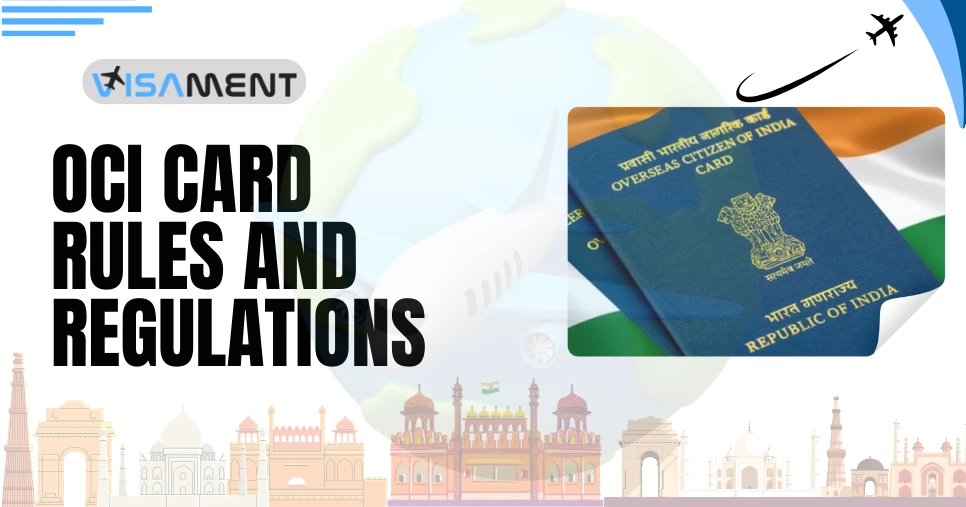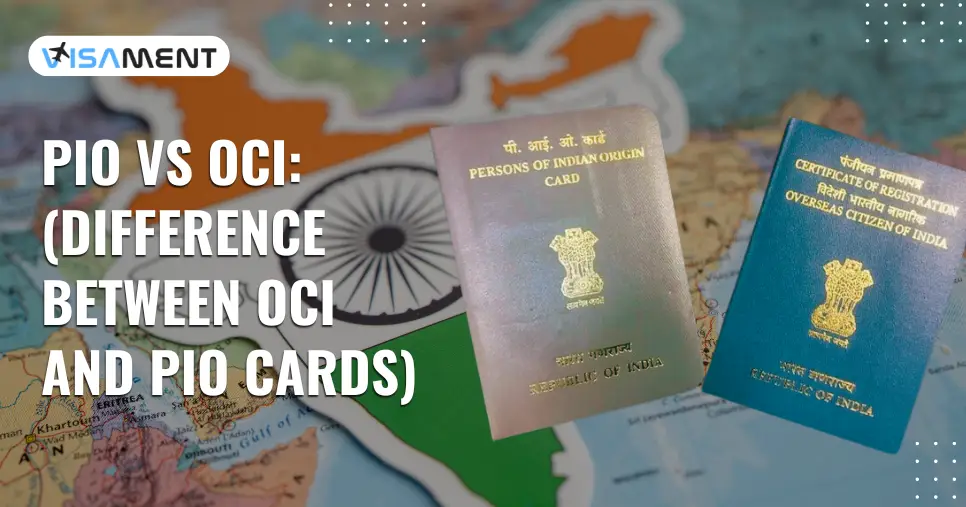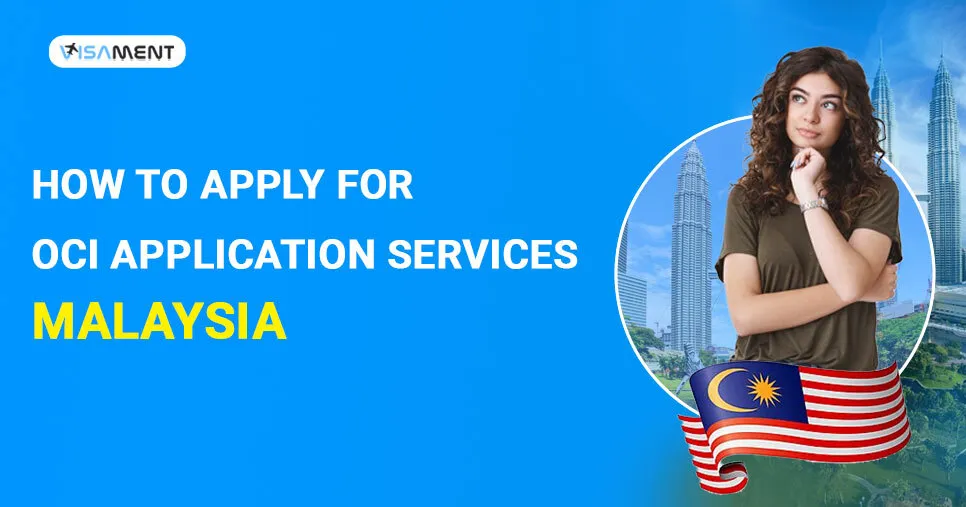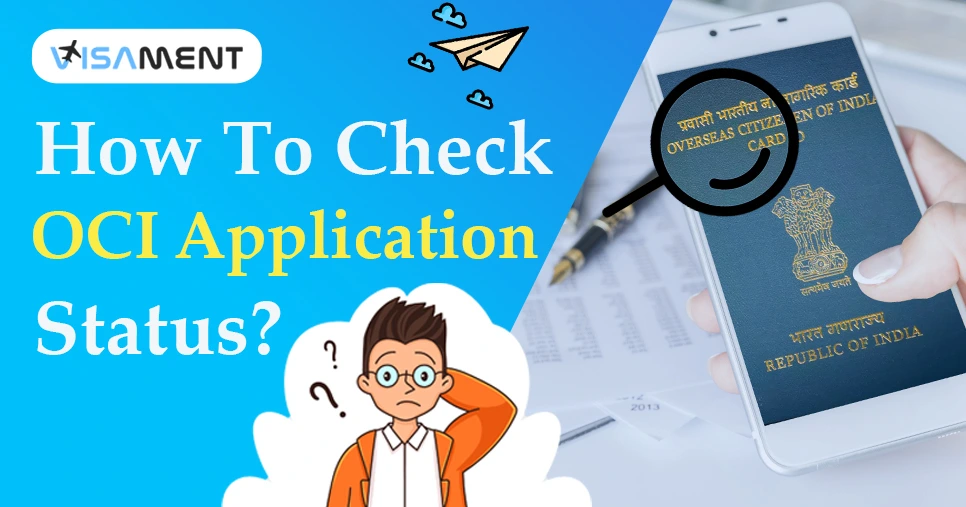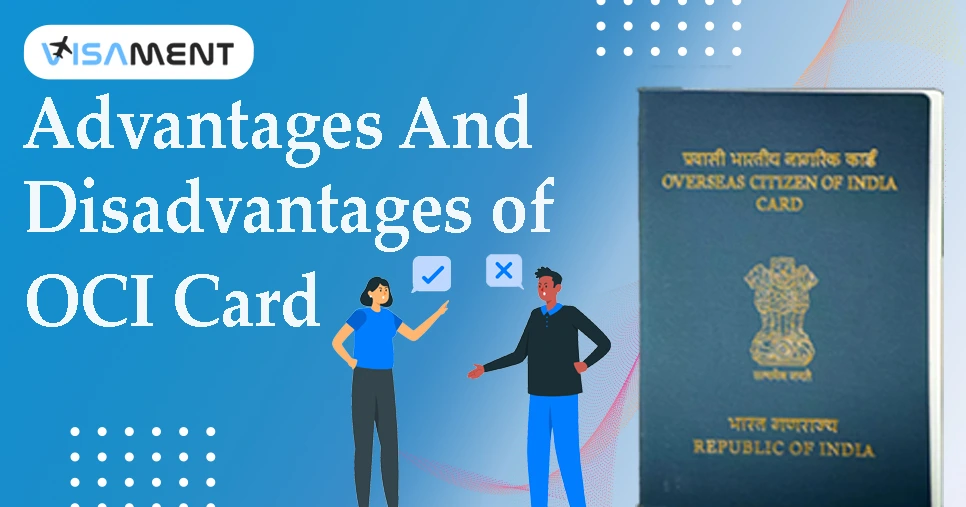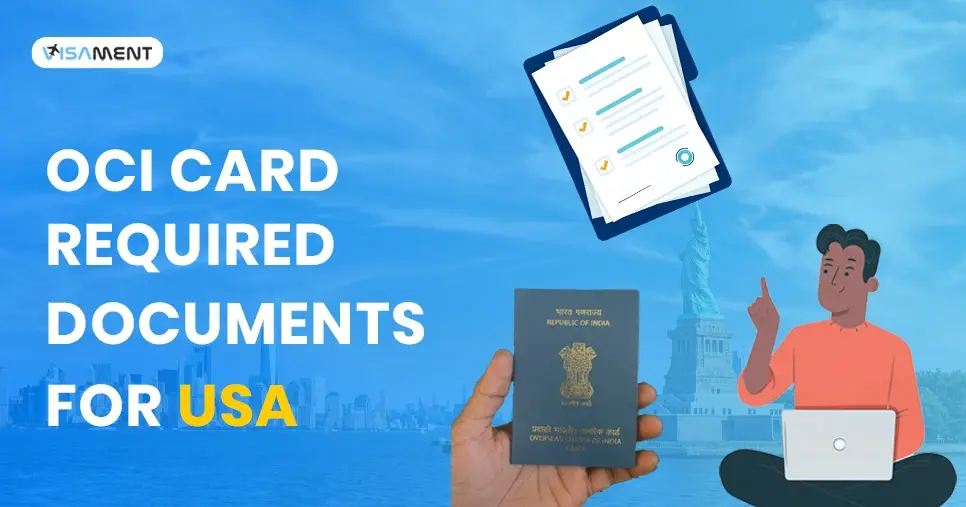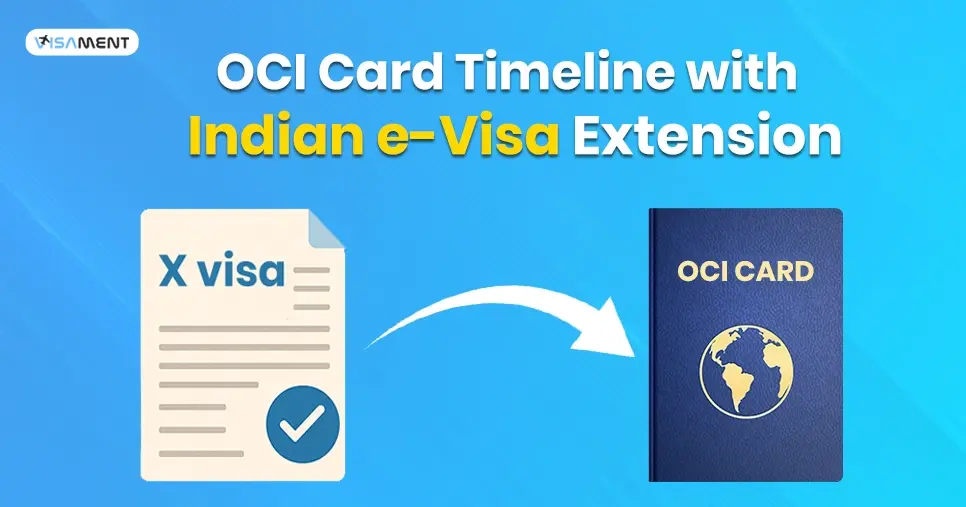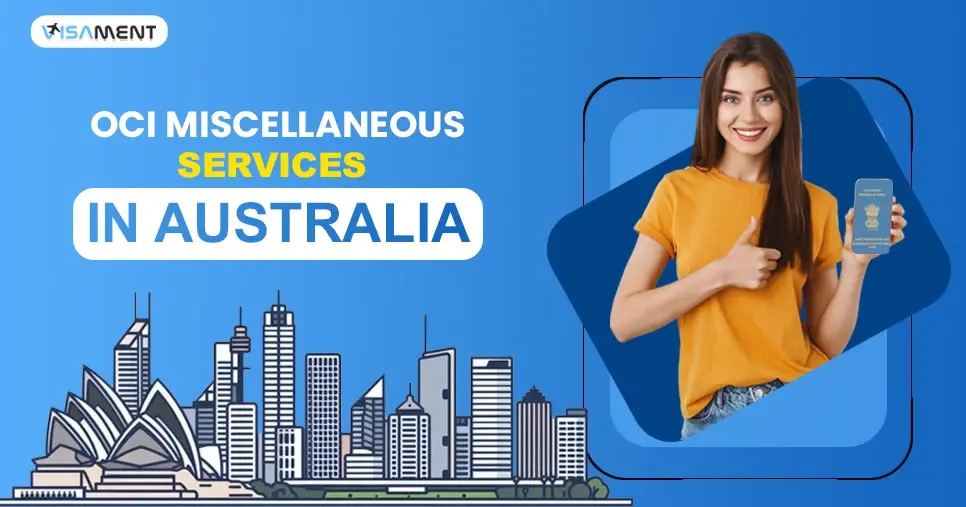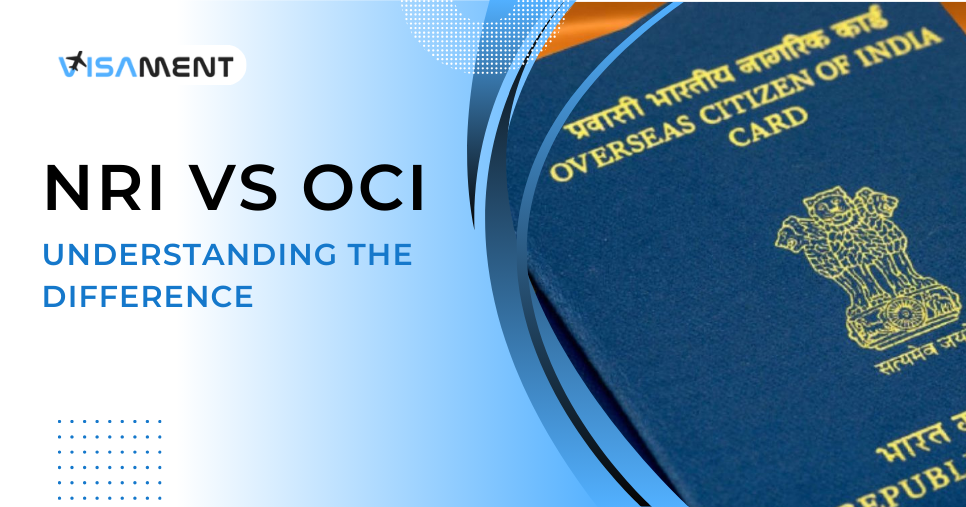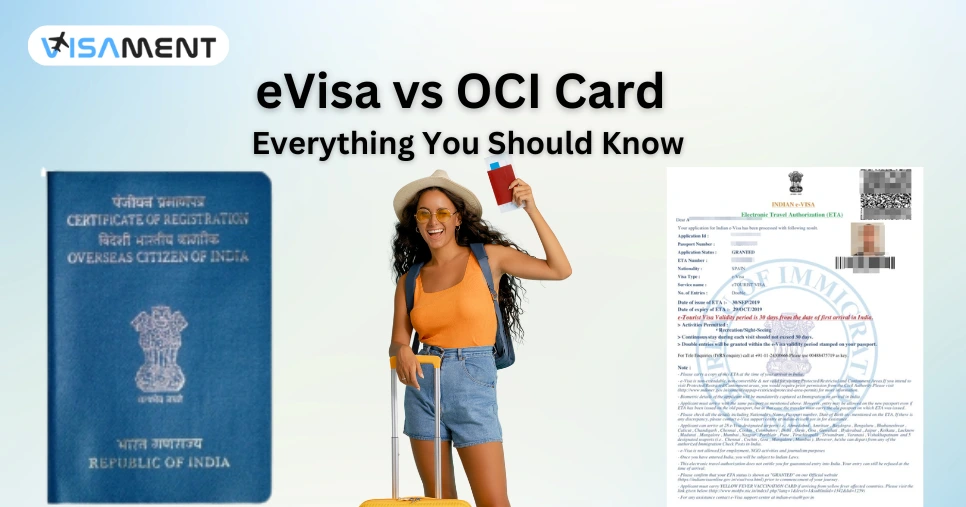- OCI Card New Rules and Latest Updates 2025
- Key Changes in OCI Card Rules and Regulations at a Glance
- Overseas Citizen of India (OCI)
- Eligibility Criteria for an OCI Card
- Application for OCI Card
- Benefits of OCI Card
- The Following Benefits Are Not Available to OCI Card Holders:
- Recent Changes in OCI Card Rules
- PAN/Adhaar Card Linking For NRI/OCI
- Reporting and Registration Requirements for OCI Card Holders
- Dual Citizenship: Restrictions for OCI Holders
- No Need for an Old Passport to Travel to India
- Impact on Employment Opportunities
- Provisions for People Registered as POI
- Conclusion
The Indian Government issued a significant circular in March 2021 highlighting the updated rules and benefits for OCI cardholders in India, replacing all previous circulars.
These changes include essential updates, such as the reporting obligations for OCI cardholders while staying in India. Also, a few years ago, another notable reform was introduced. Under this, the OCI cardholders need permission to take part in Tabligh activities.
Understanding these changes is crucial for applicants before applying for an OCI card. Curious about the new OCI rules and regulations? Read this blog for updates, requirements, and essential details.
OCI Card New Rules and Latest Updates 2025
According to the recent data of August 2025, the Ministry of Home Affairs (MHA) has made some changes in the rules for the cancellation of OCI holders for criminal activity.
- If the OCI cardholder is sentenced to a period of more than two years, their OCI will be cancelled.
- If the OCI cardholder has committed a serious crime or any punishable act, they will be punishable for 7 years in prison, and their OCI card will be cancelled.
- Previously, the cancellation of the OCI card for any criminal activity was 5 years from the registration date, and now it has been changed to the OCI cardholder's lifetime.
- The OCI cards were cancelled for violating any Indian laws, security, and fraudulent activities.
- Now, India is also introducing the new smart OCI cards, which help the OCI cardholders to travel more smoothly and easily.
- People who have committed serious crimes are not eligible to apply for the OCI registration.
Note: Under these provisions, 122 OCI registrations were rejected between 2014-2023, 57 in 2024, and 15 OCI registrations were cancelled till May 2025.
Key Changes in OCI Card Rules and Regulations at a Glance
The following are the changes at a glance in the OCI card rules and regulations. The guidelines were released on 4th March 2021 by the Union Ministry of Home Affairs (MHA), India. Moving ahead, let's know them:
- Now, overseas citizens of India do not need to reissue their OCI cards whenever they apply for a new passport.
- However, applicants who are 20 years of age or below need to get a new OCI card after they turn 21. In addition, they need to upload a copy of their passport and a recent photo on the OCI portal to keep the OCI data up to date.
- Under the current law, a foreign spouse of an Indian citizen, a foreigner of Indian heritage, or a foreign spouse of an OCI can register for the card. However, these applicants need to upload a copy of their new passport on the OCI website. In addition, the documents include a declaration of marriage that is still valid, a recent photo of them, and a passport holder's photo. They can do this within three months after receiving the passport.
- Apart from that, after reaching 50 years of age, applicants need to upload their new passport and photo once.
These are the new requirements that OCI cardholders need to fulfill while applying for the card. Implementing this process, the government has also eased the re-issuance needs of OCI cards. Also, these changes have shown the flexible attitude of the government toward OCI holders. Furthermore, all the document uploading services on the OCI site are free of cost. Moving ahead, let's learn more about the overseas citizens of India.
Overseas Citizen of India (OCI)
OCI is a permanent residence status for people of Indian origin who are living abroad. In addition, it allows them and their spouses to work permanently in India. However, the OCI status is not an Indian citizenship. Also, it does not allow one to hold public office or voting rights in the country.
Apart from that, as stated above, OCI holders receive multiple-entry and lifelong visas for coming to India. However, they are exempt from registration with the Foreign Regional Registration Officer (FRRO) to stay in India. In addition, they are also entitled to general parity with Non-Resident Indians. It includes all available facilities like finance, education, and economics. Considering this, it accepts the plantation of properties, farmhouses, and agricultural land.
Further, till 31 January 2022, 40.68 lakh OCI registration cards have been issued to people of OCI status in India. In response to the demand for dual citizenship, the Citizenship (Amendment) Act, 2005 (CZ Act), launched the OCI scheme. Through this, overseas citizens receive many privileges similar to those enjoyed by the local people of India. However, anyone who has been a Bangladeshi, Pakistani, or any of his/her family members is not eligible for OCI.
Apart from that, OCI is a term that refers to those people who have permission to live, work, and travel in India permanently. In addition, to maintain their foreign citizenship, they need to comply with the 1955 Section 7A CZ Act.
It was all about the Overseas Citizenship of India (OCI). Moving ahead, let's know the eligibility criteria for the card.
Have questions? Our experts guide you through every step of the OCI process – no confusion, no delays.
Consult an Expert TodayEligibility Criteria for an OCI Card
In general, individuals who are qualified for the OCI card registration are as follows:
An individual who has an Indian passport by his/her side,
- A person whose parents, grandparents, or great-grandparents were born in India or lived there. However, none of them should be citizens of Bangladesh and Pakistan.
- A minor whose parents are both Indians or one of them is Indian.
- A foreign national is also eligible to get the OCI card if he/she is married to an Indian citizen or OCI cardholder. However, registering their marriage and maintaining it for two years is compulsory.
The following are the eligibility criteria that a person needs to fulfill to get the OCI card. Moving further, let's know about the application for an OCI card and its perks.
Application for OCI Card
As mentioned above, people who moved from India and earned foreign citizenship are eligible for OCI. With this, the following are the perks that come along with the OCI status:
- With an OCI card by your side, you can visit India as often as you want for various purposes.
- In addition, during your stay in India, you do not need to report to the police.
- Get the economic, financial, and educational parity with NRIs. However, you are not allowed to do agriculture or plantation activities.
- If you have registered yourself as an OCI for five years and lived in India for one year, you can apply for Indian citizenship. For this, you can apply through section 5 (1) (g) of the 1955 Citizenship Act.
It is how the application for an OCI card works. In addition, these are the perks it provides to people who apply. However, the processing time for OCI Applications has not changed. Further, do you know apart from these, there are more OCI benefits? Read below to learn more.
Benefits of OCI Card
These are the additional benefits you get when you have an OCI card by your side:
- Exemption from reporting to the police authorities during your stay in India.
- In the case of flight prices in internal sectors of India, as a registered overseas citizen of India, you will be treated equally to the Indian residents.
- The prices of the Wildlife sanctuaries and national parks in India will remain the same for you as they are for domestic Indian visitors.
- In terms of inter-country adoption, Indian children registered as OCI will be equally known to NRIs.
- The visiting fees for historical sites, monuments, and museums in India will remain the same for both NRIs and OCIs. In addition, you are also allowed to pursue the following professions: doctors, CA, and more.
- The NRI rights in India include the ability to appear for pre-medical tests or other exams in India. However, they need to follow the relevant acts for admission.
These are the perks that you get as an OCI cardholder in India. Well, with benefits, the drawbacks of it also surface for OCI cardholders. Moving further, let's know some of the disadvantages of OCI cards.
The Following Benefits Are Not Available to OCI Card Holders:
The following services are not allowed to OCI cardholders:
- An individual who has an OCI card is not allowed to vote in the Indian elections. In addition, he/she cannot be part of Parliament, the Legislative Council, or the Assembly. Also, he/she cannot hold constitutional positions such as a judge in the high or supreme court, the presidency, or a government position.
- The OCI cardholders are not entitled to receive benefits from government subsidies.
- Apart from that, they are not eligible to get the repatriation perks from the government of India.
- For public services, OCI cardholders need to pay the same fees as foreigners. It includes wildlife sanctuaries and national parks.
- Another disadvantage of the OCI card is that the cardholder may need to pay income tax on their earnings in India.
These are the drawbacks that an OCI cardholder faces along with the OCI status. Moving ahead, let's now address the key topic—changes in OCI card rules and regulations—and gather some information.
Recent Changes in OCI Card Rules
The central government of India has decided to ease the re-issuing of the OCI card process. This decision was made on the orders of Shri Amit Shah, the Union Home Minister of India. Apart from this, many more rules and regulations regarding OCI cards have changed in India. To know, read the section below.
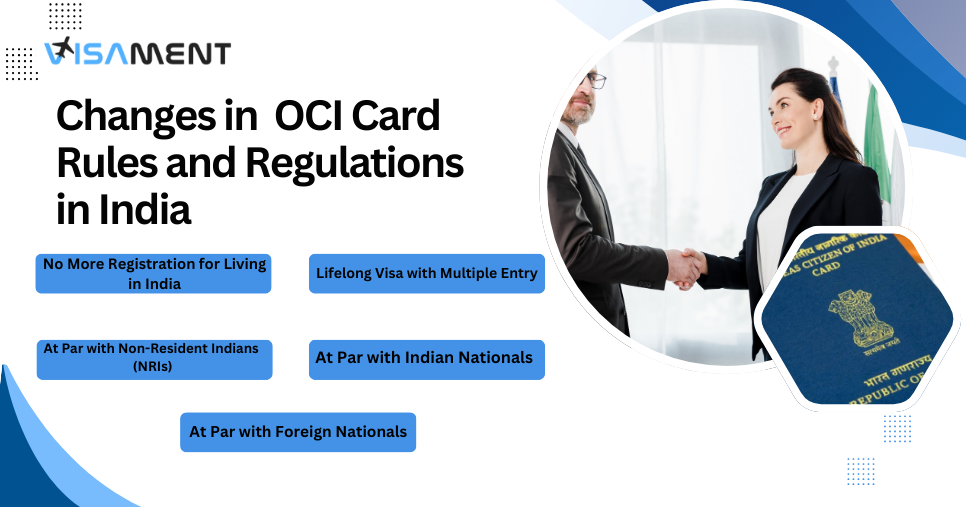
1. No More Mandatory Registration for Living in India
One of the perks that OCI cardholders receive from the changes in OCI card rules and regulations in India is the ability to register. The individuals do not need to register to live in India. Now, a defined competent authority, FRRO or Indian mission, provides them a special permit to live in the nation.
2. Lifelong Visa with Multiple Entry Privileges
It is well-known that OCI cardholders have permission for multiple entries into India for several purposes. However, now, for some specific activities, they do not get special permission. These are as follows:
- Tabligh/ Missionary/ Journalistic/ Mountaineering activities
- Research activities
- Visit to places or areas notified as prohibited/ protected/ restricted space by the Indian Government.
- Employment or Internship with any foreign government organization or India-based foreign diplomatic missions.
- For this applicant, grant special permission from FRRO or the Indian mission.
3. Equal Status with Non-Resident Indians (NRIs)
The following rights are the same for OCI cardholders like NRIs:
- Sale or purchase of immovable properties, except farmhouses, agricultural land, or plantations.
- Inter-country adoption of children born in India. However, we need to follow the rules and procedures of adoption under applicable laws.
- Pursuing specific professions like a dentist, a lawyer, or a CA in India. Considering this, the applicants need to follow the applicable laws for OCIs.
- Taking part in the all-India entrance exams like NEET, JEE, or other tests makes them eligible for admission to the NRI seat. However, OCI cardholders are not eligible to get admission to the seats that are reserved for Indian citizens.
4. Equal Status with Indian Nationals in Specific Areas
The following rights are the same for OCI cardholders, like Indian Nationals:
- Airfares inside India
- Entry fees for national parks, monuments, historical sites, wildlife sanctuaries, and museums in India
5. Equal Treatment as Foreign Nationals in Other Areas
The following rights are the same for OCI cardholders, like Foreign Nationals:
- Aspects of the financial fields not listed in the OCI Notification 2021
- Under the Foreign Exchange Management Act 1999 (FEMA), privileges and rights are not stated by the Reserve Bank of India (RBI) in any notification.
These are some of the changes in OCI card rules and regulations that have taken place for OCI cardholders in India. Also, it is vital to know that the 2021 notification OCI issued by the MHA has replaced all the previous ones. It includes notifications from 11 April 2005, 5 January 2027, and 5 January 2009. Apart from that, more things need to be considered by the cardholders. Read on to learn about them.
PAN/Adhaar Card Linking For NRI/OCI
According to the Income Tax Department of India, OCI/NRI must link their PAN with an Aadhar card. If an applicant fails to do so, the government will inactivate his/her PAN card. In addition, he/she will also have to pay Rs. 1000 as a penalty as per the 2021 Finance Bill. Well, with this recent Aadhar-PAN connecting deadline, both NRI and OCI were frightened.
However, as per Section 139AA of the 1961 Income Tax Act, the following thing does not apply to people who do not have Aadhaar or Enrolment ID. Also, who belongs to the following categories:
- Individuals who live in the states of Assam, Jammu and Kashmir, and Meghalaya.
- Non-Indian citizens.
- As stated by the 1961 Income Tax Act, Non-resident Indians.
- People aged 18 or older at any time during the last year.
Well, the linking of the Aadhar card with the PAN card depends on whether the OCI cardholders have Aadhar cards on their site. Apart from that, it also depends on whether OCI cardholders have earned any income from India. Moving ahead, let's learn about the other changes in OCI card rules and regulations for overseas citizens in India.
We will guide you throughout the process of helping you achieve success in your studies abroad.
Contact US
Reporting and Registration Requirements for OCI Card Holders
While you remain an OCI cardholder in India, you no longer need to inform the FRRO. However, if you change your residential address or occupation, you need to tell them. You can provide this information to them either through email or in person.
Changes in it provide OCI cardholders the perk of living in India without any restrictions. In addition, it will save them from the hassle of reporting and registration. Moving ahead, let's know about the limits of dual citizenship for OCI.
Dual Citizenship: Restrictions for OCI Holders
The OCI initiative was the Indian government's answer to Indian-origin persons who were asking for dual citizenship. This initiative was introduced in August 2005. It provides cardholders with equal opportunities, similar to NRIs. However, it restricted them to political rights, such as holding public office or voting rights. In addition, with the adoption of the 2021 notification, the right of OCIs has been further restricted.
While the cardholders still live and leave India, there are new limits on their educational and work options. The launch of new OCI card rules and regulations is a step back for the country from the progress of dual citizenship for NRI individuals. Further, it also includes the OCI cardholder's placement in the category of NRI.
It was all about the dual citizenship restrictions of the country for OCIs. Moving ahead, let's know the other travel rule change for OCIs.
No Need for an Old Passport to Travel to India
According to the Indian government's announcement, Indian-origin people with OCI cards do not need to carry their old or expired passports when traveling to India. The card, which is given to Indian heritage people all over the world, allows them to enjoy their travels in the nation. In addition, it offers them the same perks as an Indian national. However, restricts them from voting rights, farming, and government services. Considering this, provide them with visa-free travel and a lifelong India visa with multiple entries.
This is another change in OCI rules and regulations announced by the Indian government for OCI. Well, it provides both perks and drawbacks to them. However, save them from the process of visa application. Moving further, let us know the impact of changes in rules on employment options.
Impact on Employment Opportunities
As per the OCI notification 2021, OCI cardholders need to have permits to be a part of any university or organization. However, this rule is for specific professionals and courses only. It includes journalists, research scholars, employees, or interns in foreign government firms. In case the company or individual fails to do so, strict legal actions will be taken against them. This is because the breaking of this rule cannot be discounted. Apart from that, the OCI cardholder also guarantees that the addresses of their employees are updated with FRRO. It may be wrong from an administrative sense for both employees and employers.
Apart from that, it is vital to know that before the notifications, they were the same for the OCI and NRIs. With this, OCI cardholders now have the same opportunities as any foreign nationals in any commercial field. Further, it may boost the employment chances of OCIs in India. Moving ahead, let's talk about POI and its provisions for people.
Provisions for People Registered as POI
On 9 January 2015, the Indian government stated that the Persons of Indian Origin (PIO) and OCI schemes would be one. All the existing cardholders of PIO registered under the new PIO program in 2002 need to apply for an OCI card. Since the merger of both schemes, the PIO card conversion deadline has been extended several times. It provided the PIO cardholders more time to apply for registration of OCI cards.
Well, the merger of both schemes provides perks to both cardholders. In addition, it offers them several perks, such as employment options in India, visa-free living, and more.
Conclusion
As an OCI cardholder, you need to remain updated with the OCI card rules and regulations. It assists you in making the most of your status in India. However, when it comes to managing all these processes, people often face issues. Considering this, having a reliable partner by your side in this situation is vital. With Visament, we provide you with all the services that you are looking for. Be it an OCI card application, passport reissue, or any service related to passports, visas, or OCI. Plus, we offer you the best services at the utmost competitive prices. So, do contact us now if you need to renew your OCI card in the USA, UK, or anything else related to these services.
Frequently Asked Questions
Yes, as an overseas citizen, you can own property in India. However, you can only buy commercial and residential properties. It is because as per Indian property laws you are restricted to buying agricultural land or any plantation property.
No, overseas citizens are not eligible to vote in Indian elections or have constitutional offices as they are not complete citizens of India.
In this case, the overseas citizens are only able to pay tax in India when they have sourced income from India. However, adhering to the same rules as per NRIs they are exempt from paying tax on their global income.
An overseas citizen can travel visa-free in India and have equal rights like the NRIs in financial, economic, and educational fields. However, they cannot hold agricultural land, farmhouses, and plantation property in India.
The OCI card provides you the privilege of living lifelong in India. In addition, allowing you to study, work, or stay in India without any time and visa restrictions.
Yes, you as an overseas citizen can travel to restricted areas in India however for this you need to have for security reasons a specific government authorization.
